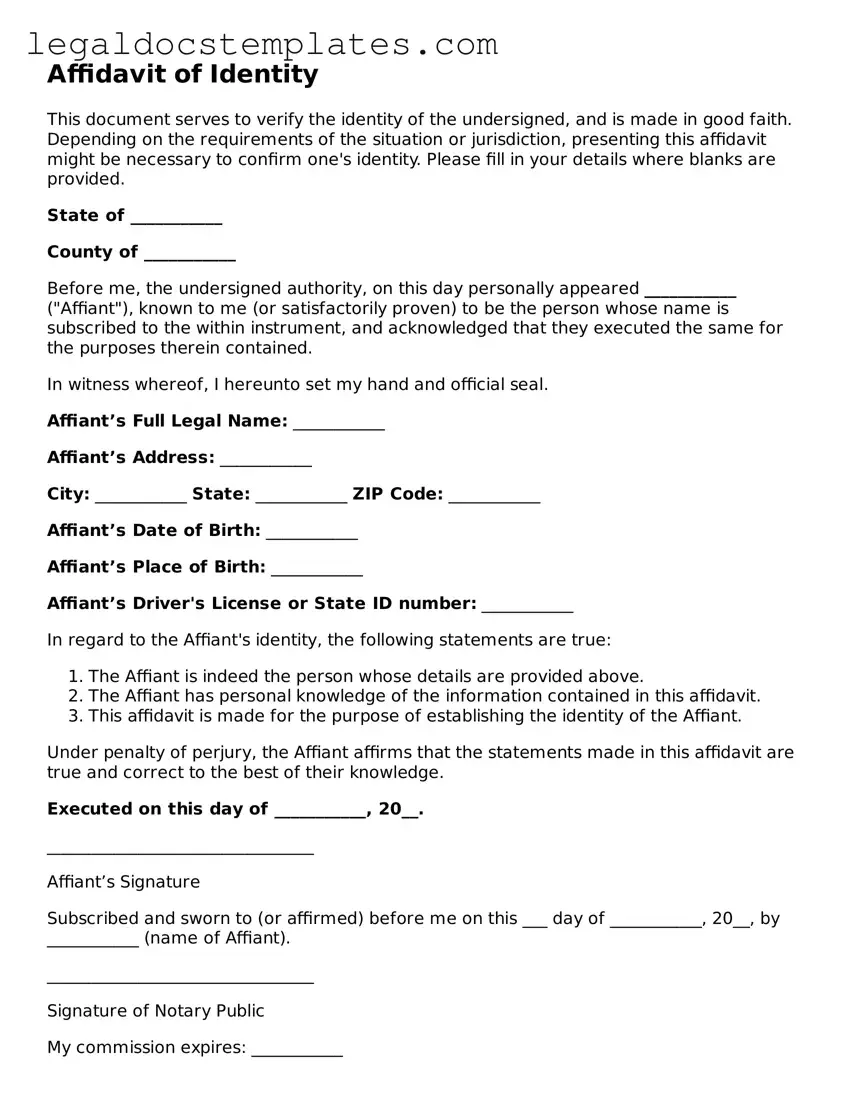Printable Affidavit of Identity Template
An Affidavit of Identity is a formal document used to verify an individual's identity through sworn statements and identification proofs. Typically, it's required in situations where legal verification of a person’s identity is necessary, such as for transactions, legal processes, or verifying the authenticity of other documents. To ensure your identity is validated securely and officially, consider filling out an Affidavit of Identity form by clicking the button below.
Access Affidavit of Identity Now

Printable Affidavit of Identity Template
Access Affidavit of Identity Now

Access Affidavit of Identity Now
or
⇩ PDF Form
Don’t spend hours on this form
Complete Affidavit of Identity online in minutes, fully digital.